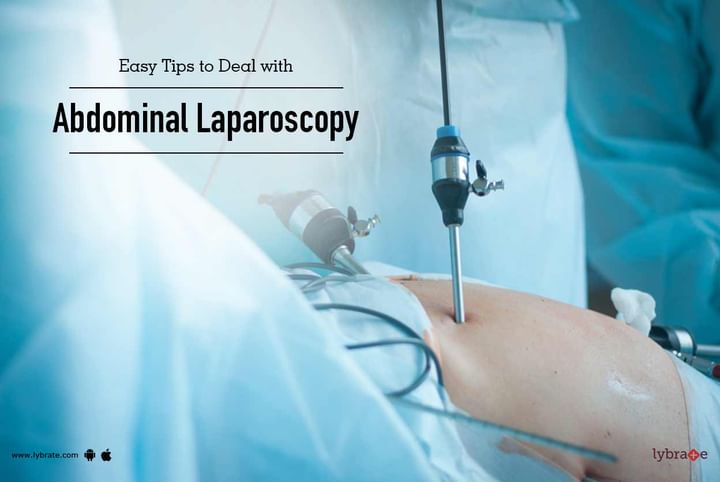Easy Tips to Deal with Abdominal Laparoscopy
Abdominal Laparoscopy is a surgical diagnostic procedure, which is used to examine the organs inside the abdomen. It is an invasive procedure, but only small incisions are made.
The procedure is usually done in the hospital and the patient is given general anaesthesia to make the procedure pain free. The laparoscope is inserted through an incision in the abdominal wall. As it moves along, the image of the inside of your abdomen is then seen on the monitor. After the exam, laparoscope and instruments are removed and the cuts are closed. Laparoscopy is usually done as an outpatient procedure. This means that you will be able to go home the same day.
Why Is laparoscopy performed?
Laparoscopy is often used to identify the source of abdominal pain. It is usually performed when x-rays or ultrasound are unable to determine the root cause of the problem. Laparoscopy allows your doctor to see inside your body in real time and helps to diagnose or help discover what the abdominal problem is.
Tips to deal with laparoscopic surgery
Before Surgery
- The first and the foremost thing is to prepare yourself for the surgery by watching some videos and going through some blogs on it as doing so will help you clear your doubts
- Do not eat or drink anything 8 hours before the procedure
- Make sure someone accompanies you on the day of the surgery
- Fix your Pre Op appointment to ask any questions or address any concerns regarding the surgery, anaesthesia, etc
- Shave the area where the surgery will be performed. This will substantially reduce itchiness
- Lastly, prepare your hospital bag and discuss it with the person who is going to accompany you so that he/she knows what all you packed
After Surgery
- Don’t lie down in bed all the time. Keep yourself active by moving every two hours as it promotes healing and helps eliminate gas pain
- Wear comfortable clothing
- Do not take bath for a week. However, you can take a shower 24 hours post surgery
- Drink at least 1.5 to 2 litres of water per day to prevent constipation. If constipated, take a stool softener.
- While sneezing or coughing, hold a pillow against your stomach to lessen the pain
- Roll onto your side and sit up using your arms for support and then stand up
- Don’t drive for two weeks
- Refrain yourself from intercourse, douching, and swimming
- Make sure to visit your doctor 2 to 3 weeks post surgery to make sure your wounds are healing
It might take some time for the wounds to heal, but in case of any prolonged pain do remember to consult doctor immediately.



+1.svg)
